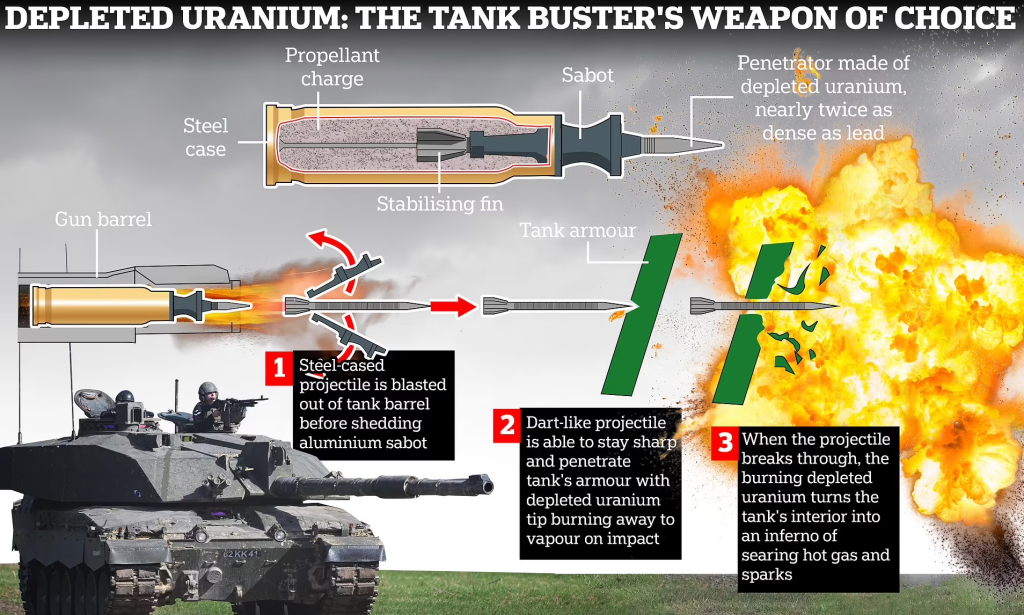The use of depleted uranium (DU) by the US and UK military is a war crime because it violates the prohibition on the use of weapons that cause unnecessary suffering or superfluous injury. DU is a heavy metal that is highly toxic and radioactive. When DU munitions are used, they break up into small particles that can be inhaled or ingested by people and animals. These particles can cause a variety of health problems, including cancer, birth defects, and neurological disorders.

The use of DU weapons has been documented in a number of conflicts, including the Gulf War, the Iraq War, and the NATO intervention in Kosovo. In these conflicts, DU weapons have caused widespread environmental contamination and have had a devastating impact on human health.

The use of DU weapons is a violation of international law. The Convention on Certain Conventional Weapons (CCW), which was adopted in 1980, prohibits the use of weapons that cause unnecessary suffering or superfluous injury. DU weapons clearly violate this prohibition.
The US and UK have continued to use DU weapons despite the evidence that they are a war crime. This is a clear example of impunity for war crimes.
The use of DU weapons is a serious threat to international peace and security. It is important to hold the US and UK accountable for their use of these weapons and to ensure that they are never used again.
Depleted uranium (DU) is a heavy metal that is highly toxic and radioactive. It is a byproduct of the enrichment of uranium for nuclear weapons and nuclear power. DU is used in a variety of military applications, including armor-piercing ammunition, tank shells, and aircraft munitions.
When DU munitions are used, they break up into small particles that can contaminate the environment. DU particles can be ingested by plants and animals, and can also be absorbed through the skin. DU is a bioaccumulative substance, meaning that it can build up in the bodies of animals over time.
DU is a serious environmental hazard. It can contaminate soil, water, and air. DU particles can be toxic to plants and animals, and can also pose a risk to human health.
Here are some of the ways that DU can be harmful to the environment:
- DU can contaminate soil and water. DU particles are very dense and can sink to the bottom of rivers and lakes. They can also leach into groundwater. DU contamination can make soil and water unusable for agriculture and drinking.
- DU can damage ecosystems. DU particles can be toxic to plants and animals. They can also disrupt food chains. DU contamination can have a devastating impact on ecosystems.
- DU can pose a risk to human health. DU particles can be inhaled or ingested by people. They can also be absorbed through the skin. DU can cause a variety of health problems, including cancer, birth defects, and neurological disorders.
The environmental hazards of DU are a serious concern. It is important to reduce the use of DU in military applications and to clean up DU contamination that has already occurred.
How to protect the environment from DU
There are a number of things that can be done to protect the environment from DU:
- Reduce the use of DU in military applications. Governments should develop and use alternative weapons that are not as harmful to the environment.
- Clean up DU contamination that has already occurred. Governments and organizations should work to clean up DU contamination in soil, water, and air.
- Educate the public about the dangers of DU. People should be aware of the environmental hazards of DU and how to protect themselves from exposure.
Shayne Heffernan









